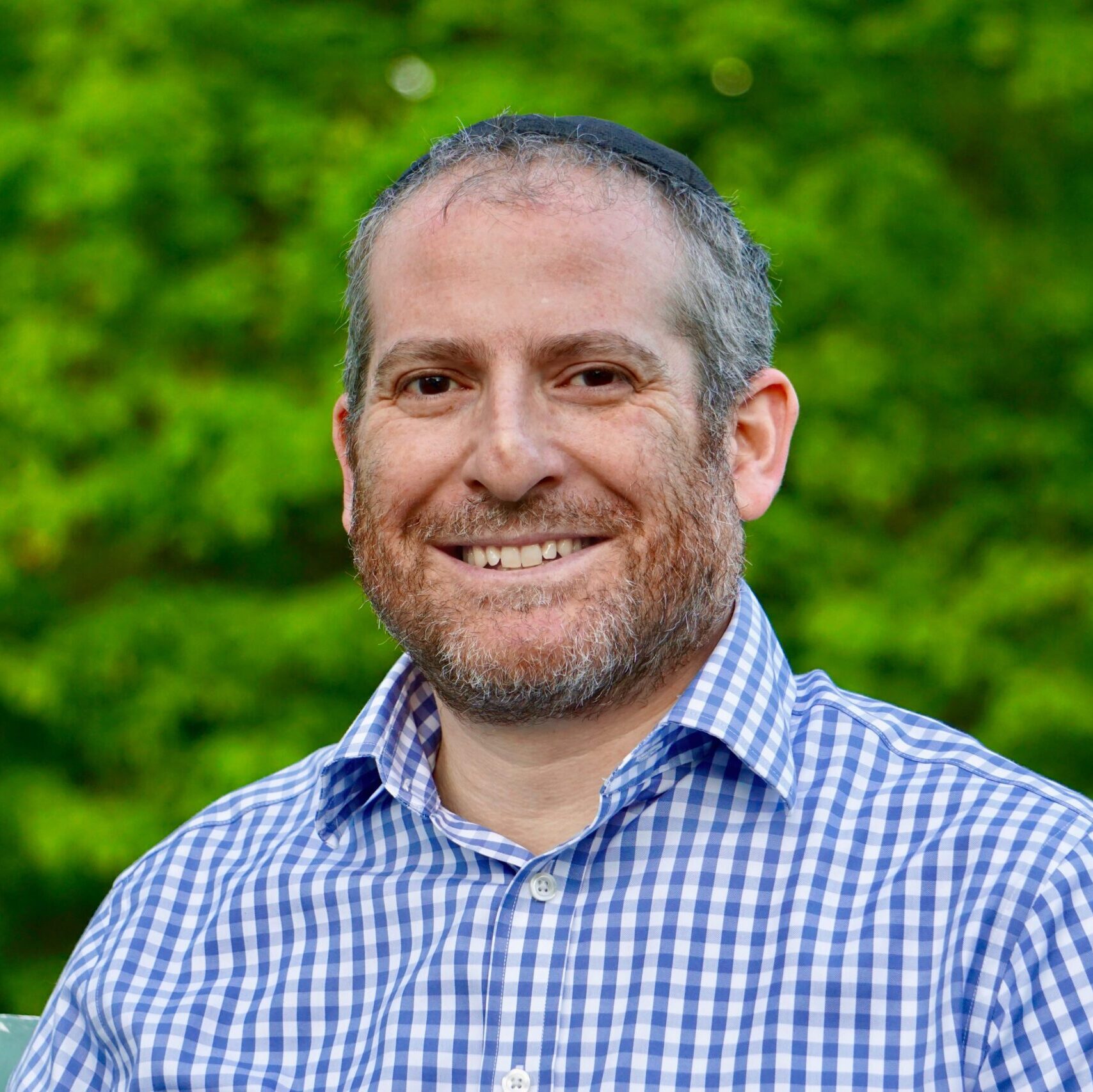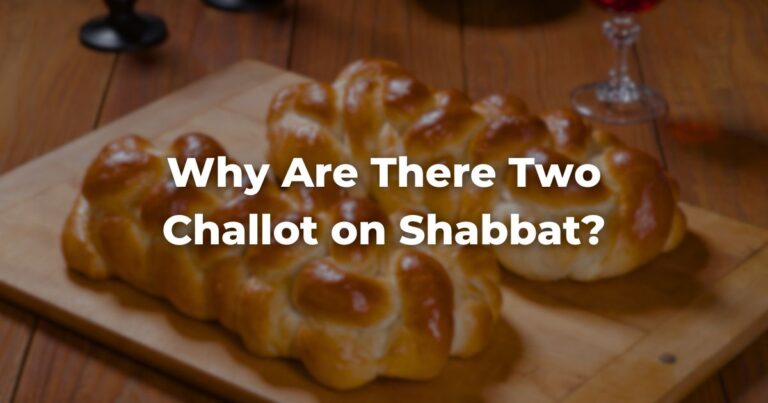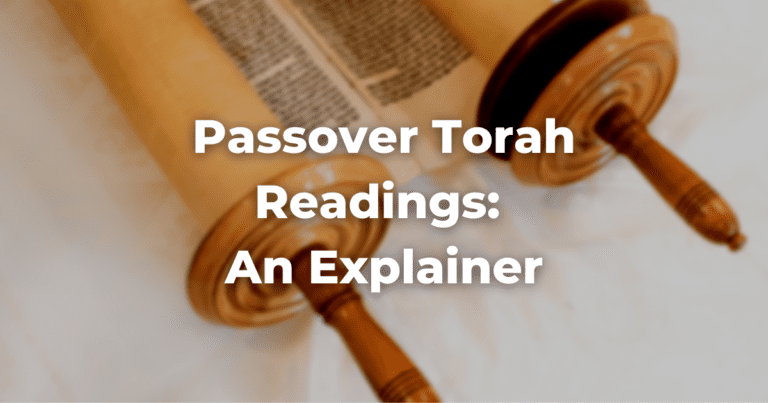Last week, my daughter went on the first tiyul, trip, of her gap year to Israel. The journey to the Jerusalem hills was prefaced by a safety and security document shared with the students and their parents, which included the Hebrew phrase misparei barzel, “Iron Numbers.”
Borrowed from Tzahal, the Israeli Armed Forces, the “Iron Numbers” system assigns each person an unchanging number until the mission, or tiyul, is completed. As we would say in English, the numbers are written in stone. The commander or group leader calls out, “Iron Numbers! Count off!” and then calls their personal number. Each person then calls their own number in order. The trip or mission continues once the count establishes that everyone is present.
“Iron Numbers” reduces variables, leaving nothing to chance. You have to be able to hear each other, but you don’t have to see each other. You don’t have to walk through a particular door on the bus. You don’t have to find your buddy or drop a name badge into a basket. It’s almost foolproof.
The army, and even school trips, can be life and death. And we want to eliminate chance as much as possible. This got me thinking about Yom Kippur and the paradox of chance appearing in one of the holiest parts of the most sacred of days.
Scapegoat Lots
The high holidays are a journey, a tiyul, as it were. We are travelling through sacred time. There are stops along the way, and each stop has an activity. The overarching theme of the voyage is a journey through judgment. Each stop has activities that we do to set ourselves up for the best possible outcome.
On Rosh HaShanah, an alarm wakes us, and we head out to inform the world that God is the Ruler of the Universe and that we see ourselves on the precipice of a year of renewed life. Rosh HaShanah is a holiday that can be understood universally. Not only do we recognize God, but we can also acknowledge and reflect on the fact that other people celebrate the creation of the universe and recognize God as Sovereign.
With our newly re-crowned Sovereign in our corner, we head out to Yom Kippur. There, the Jewish people engage with God, hoping to convince ourselves and the Creator of our worthiness. We began this process on Rosh HaShanah by announcing the three tools we can use to improve our potential outcomes: Teshuvah, Tefilah, and Tzedakah—repentance, prayer, and charitable works. These three tools are, in a sense, a currency one uses to tilt the scales. This healthy and wholesome bribe requires introspection, reflection, and action. This is the human input into the balance, but God is the one holding the scale. This refrain is also used on Yom Kippur. There’s always time in the quest for renewal, even if you haven’t done the work yet.
With these mechanisms in place, it’s striking that the TorahRefers to the first five books of the Hebrew Bible, the Tanakh, also called the Five Books of Moses, Pentateuch or the Hebrew equivalent, Humash. This is also called the Written Torah. The term may also refer to teachings that expound on Jewish tradition. Read more requires an act of chance in one of the most critical aspects of the Yom Kippur service. The selection of the Seir L’Azazel—the Scapegoat—was accomplished through a lottery. There was a box in the Temple in Jerusalem with two tokens. One said “L’Hashem,” and the other “L’Azazel”: “to God,” and “to Azazel,” the wilderness. The goat that went out to Azazel was bearing the sins of the Jewish people, and was sent out of Jerusalem to be destroyed in the desert. The goat for Hashem was sacrificed as a sin offering in the Temple.
The selection of the goats at this part of the Yom Kippur service could have been established without the lottery. It could have been the right goat or the left goat, the north or the south, or by age. But, for some reason, the Torah requires that there be this lottery, this insertion of chance into the program of the day.
There is a delightful source in the Tikkunei Zohar (57b:4): “It is called ‘Purim‘ because of Yom HaKippurim [which can be read as “the day that is like Purim”].” It is striking to note that in the imagination of the author of Tikkunei Zohar, the name of Yom Kippur is derived from Purim, and not the reverse. The word “Purim,” lots, refers to the lottery that Haman conducted to establish the date of his pogrom. It’s a terrible reference point, but it allows us to see that in the depths of each of the holidays of Tishrei, the high holidays, there is a reliance on some form of chance to determine the fate of the Jewish people.
But what about misparei barzel? Aren’t we trying everything we can to eliminate chance? We pray, fast, give tzedakah—all to tip the scales beyond chance.
Leaving Room for God
Two of my teachers have illuminated this question for me. As a college student, I heard Rabbi Tzvi Grumet, with whom I would later study at the Pardes Institute for Jewish Studies, teach, “If you keep counting your money, then you’ll never find an extra twenty-dollar bill.” When it comes to faith, we must let go a little. We need to leave some space and relax our neurotic checking in.
Around the same time I met Rav Tzvi at Pardes, I had a halakhic (Jewish legal) question, and I called one of my former teachers, Rabbi Natan Greenberg. The question was vital at the time as it related to a medical issue, but the answer was timeless. Rav Natan said, “You have to leave a little room for HaKadosh Barukh Hu, the Blessed Holy One.”
Together, Rav Tzvi and Rav Natan taught that faith only works when there is doubt. Call it chance, uncertainty, or questioning—that is the space God can inhabit.
This is why the Scapegoat was chosen by lottery. The lots differed, but the goats themselves were required to be identical. If they are identical, why does it matter which goat we choose to send away? It doesn’t. What matters is that there is a moment of mystery beyond our control wherein we allow God to operate.
As we continue our journey through the holidays, we leave Yom Kippur and come to Sukkot—the great harvest festival where we celebrate the bounty that the summer brought to the Land of Israel. Sukkot is an embrace of chance: a seed may or may not grow, a grape may or may not give tasty wine, a Sukkah may or may not be blown over or soaked with rain. We close the holiday with the prayer for rain, effectively a prayer for sustenance and success. Rain, as the rabbis say, is completely in God’s control (see GemaraThe discussion portions of the Talmud based on the quoted Mishnah. Read more Ta’anit 2a; Tanhuma Vayeitzeh 16).
In our times, the closing of the holiday season has been tied to the terrible acts of October 7. This is another reminder of how hard it is to understand the workings of this world and the ways that humanity can corrupt beauty and life.
Framing our holidays as an attempt to ensure a positive outcome can only take us so far. We must ultimately recognize that the anxiety and mystery of these days are the very fruitful soil in which faith can grow—where we leave a little room for God.
Author
-

Rabbi Mordechai Rackover serves as Editor in Chief of Exploring Judaism and Director of Publications and Digital Engagement at The Rabbinical Assembly. He has a background in education, campus work, and the pulpit. Mordechai studied for nearly a decade in a number of Yeshivot in Israel and has a BA in Jewish Studies from McGill University and an MA in Jewish Communal Leadership from Brandeis University. When not working he can be found reading or cooking and occasionally catering. Check out his Instagram for mouthwatering shots.
View all posts




